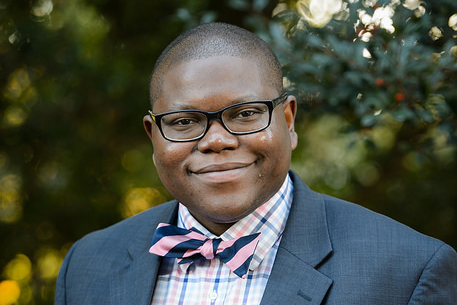The Archway Partnership opened doors for UGA Assistant Professor Darris Means when he began to study the tools and skills high school students used to prepare for college.
He had reached out to 20 Georgia school superintendents hoping for access to students, but none were accommodating. Pulaski and Candler counties, both Archway Partnership communities, welcomed him into their schools.
Since the start of the 2017 school year, Means has been talking to African American high school students in both school systems, studying how they, along with students of low-income and first-generation college families, navigate their pathways to and through higher education. He hopes to complete the study over the summer and return to the schools to present his findings next fall.
“I could not be doing this study without Archway,” said Means, an assistant professor of counseling and human development services in the College of Education. “The Archway Partnership already has that rapport. They already have those relationships. It’s been fantastic partnering with them.”
The Archway Partnership, a unit of UGA Public Service and Outreach, connects Georgia communities with UGA resources to address locally-identified needs. Since the program was created in 2005, a growing number of faculty members have used the communities for their research, often bringing students along. The result is a benefit to both UGA and the community.
That reputation is what helped Means get into the Pulaski and Candler County schools.
“All of the projects we do are locally driven, so we presented the opportunity to the school system, and they wanted to do it,” said Sam Perren, the Pulaski County Archway Professional.
Catherine Muse, the Archway Professional in Candler County, said, “Once Dr. Means connected with the high school counselors, they hit the ground running. It’s been a really smooth process.”
Means’ research focus is on social justice and college access. Before he began studying how students prepare for college, he completed a study on the college and career aspirations of rural black teenagers.
“Being able to interview and work with students and school staff just really inspired me to think about how important it is to make sure that that narrative of rural black students and their families is heard,” he said.
Although Means work in the schools has been primarily for his study, it has given him an opportunity to give back.
“Along the way, I’ve enjoyed having the opportunity to not only speak with students, but I’ve also given presentations at different high schools about pathways to college,” he said. “It’s been great to do a combination of that outreach and research while I’ve been doing this study.”
By Alexandra Shimalla and Rosanna Cruz-Bibb



